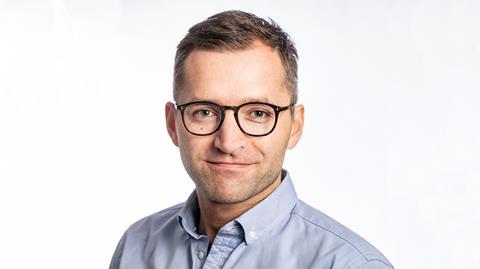Tim Gerhartz, managing director at Seven One Studios International, talks brands, buyers and less wiggle room on deals
With buyers flocking to London TV Screenings and Mip London this week, Broadcast International speaks to Tim Gerhartz, managing director at Seven One Studios International, about delivering ”big, loud” brands to buyers.
Describe the state of the distribution sector in a few sentences.

The sector is experiencing a phase consolidation influenced by broader global economic trends and shifting dynamics within the industry. With so much uncertainty out there, broadcasters are becoming more selective, and favouring high-quality, standout projects over mid-level content. There’s a big push for content that perform well across multiple platforms, like Married at First Sight, that offer compelling storytelling and universal appeal that translates effectively across different markets – it’s now in over 30 territories – and viewing habits.
What is the biggest challenge for the global distribution industry in 2025?
Economic pressures and an evolving market are making things tougher – tighter budgets, and more competition mean everyone has to be smarter and more strategic.
What is the biggest opportunity for the global distribution industry in 2025?
Change brings opportunity. To stay ahead, distributors must prioritise innovation and originality to stay competitive. Right now, buyers are all about big, loud brands that work across platforms – just look at the continued success of Married at First Sight, which is a flagship brand for both Channel 4 and 9Network, where it’s seen huge growth in recent seasons, across both linear and BVOD. Broadcasters need new signature shows to cut through the noise. That’s where our formats come in – from Stranded on Honeymoon Island to the German hit Beat the Channel.
On top of that, economic pressures have also ushered in more creative ways of looking at commissioning and production, with more hubs and back-to-back productions. We’ve seen this work well with Stranded on Honeymoon Island. It’s proving to be a great way for broadcasters across different countries to collaborate and cut costs.
How have discussions with buyers (both commissioners and acquisitions execs) changed in the last 12 months?
Conversations have become much more focused. Traditional broadcasters and streamers know exactly what they’re looking for, and there’s very little wiggle room. It’s all about creative excellence combined with efficiency now.
Where is growth going to come for your business in 2025 and beyond?
We’ve carved out a strong position as a distributor with a strong expertise in bold, high-impact formats. Seven.One Studios International is the go-to for formats that have the potential to grow into channel-defining brands. We’re looking forward to building on that and bringing even more exciting formats to market in the next year. Stay tuned – we’ve got some exciting announcements coming up.
How important are global streamers to scripted coproductions and how do you expect their changing positions regarding rights will affect your pipeline?
Global streamers have been a key facilitator of co-productions for a while. In the near future, we´ll see coproduction set-ups between broadcasters and streaming services on a national level becoming even more common.
Dialling into distribution at London TV Screenings
- 1
- 2
- 3
- 4
- 5
- 6
- 7
- 8
- 9
- 10
 Currently reading
Currently readingDistribution in Focus: Seven One’s Tim Gerhartz
- 11
- 12
- 13
- 14
- 15
- 16
- 17
- 18
- 19
- 20
- 21
- 22
- 23
- 24






























No comments yet